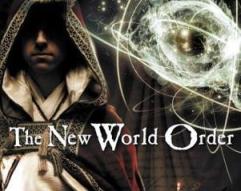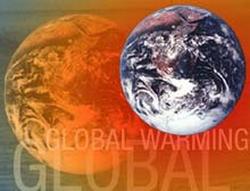By Eric Vandenbroeck and co-workers
Because world order
is more than merely power politics one cannot assume state sovereignty and the
resultant anarchy, the story of world order is usually told using a fairly parochial
view of the modern state with its origins in Europe. This makes sense only
insofar as the nation-state is the dominant mode of territorial organization.
It seems however that as we pointed out at the start of this
website that it might be
more valuable to consider not only this dominant model, but other alternatives
as well. An additional question we look at this time however is, what is world
order?
What we will
demonstrate here, is why within international relations the fixation on
anarchy, understood as the lack of an overlord, has caused many to ignore
variations in role structures that define and unite various polities. In the
past, some have suggested that the recent growth of international institutions
have fundamentally challenged traditional state-centered nationalism. Others
focusing on the democratic deficit have made the claim that because of their
size and complexity international governmental organizations (IGOs) lack the
capacity to effectively respond to the interests of individual citizens. Both
of these issues contributed to the recent ratification failure of the European
Constitution in the EU. What is novel about the argument that I am putting
forward is that the IGOs are not the root of the problem. Instead, the shifts
that are likely to happen are mainly the consequence of a failing ideological
subsystem. It is not the lack of nationalism or a democratic deficit, but the
growing failure of Americanization that is driving the growing inefficiency of
absolute sovereignty. This suggests that, contrary to the theories of many
cosmopolitan thinkers such as David Held and Daniele Archibugi,
the chief impediments to a global world order are not arbitrary limitations on
democracy among states. Instead, if the evolving subsystems continue on their
current course it is more likely that the
Westphalian ideal
will reach a point where it simply fails to describe the modern world order.


In the end, there
could be only one winner in the economic rivalry between the United States and
the Soviet Union, and could end with no winner at all. But the losers in the
Third World's War, can be counted in millions. The Truth
about the Cold War:
Settling into the
White House in 1993, Bill Clinton had undeniably inherited a shiny new world
where American power, no longer trammeled by the Soviet Union, stood at its
historical apex. Superpower Politics.
Where the United
States is the security lender of last resort, American power is a provocation
for the lesser players. Anti-Americanism.
"The Bush
Doctrine is actually being defined by action, as opposed to by words,"
Bush told Tom Brokaw aboard Air Force One in 2003. Mai 2006 then, President
Bush modulated himself; at a press conference with British Prime Minister Tony
Blair, Bush swore off the Wild West rhetoric of getting enemies "dead or
alive," conceding, "in certain parts of the world, it was misinterpreted."We now look at the situation in the
World as it stands now: The Last WWIII.
P5.html
For updates click
homepage here